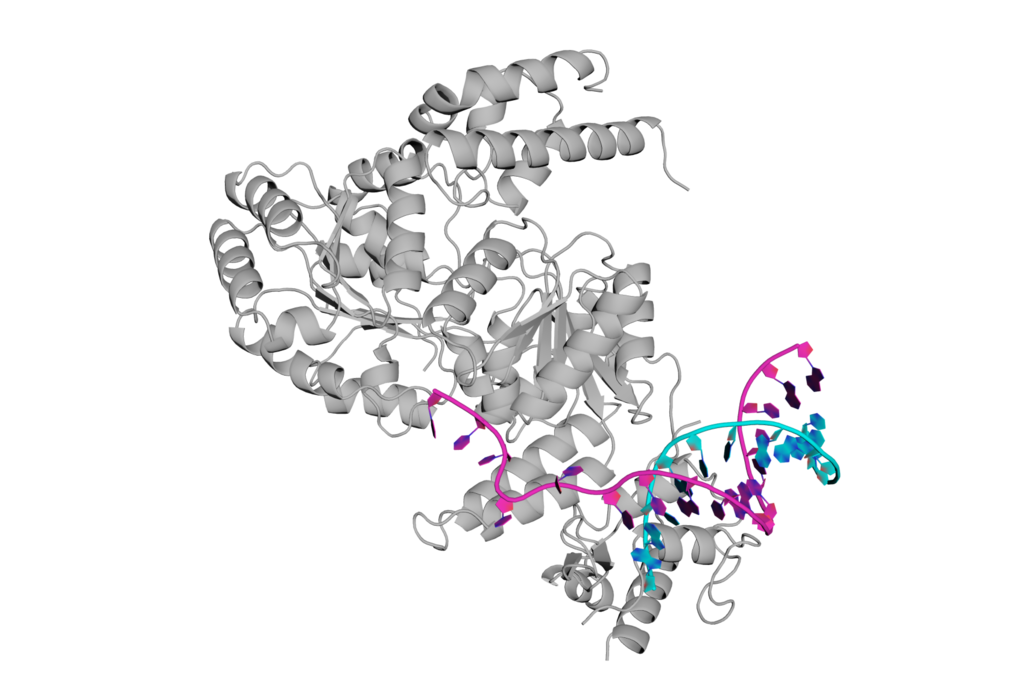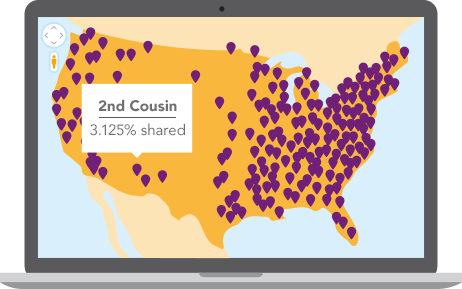US regulator permits 23andMe to conduct genetic test for Bloom syndrome directly to consumer
The American regulator allowed 23andMe to conduct genetic testing for Bloom syndrome directly for private clients with whom the company could not work since 2013 due to a government ban. From its inception in 2006 to 2014, the company conducted an analysis on the predisposition to diseases for more than seven hundred thousand people.
Structure of the Bloom Syndrome Helicase (BLM) complex with DNA.

Founded in 2006, 23andMe is a privately held biotechnology company from Mountain View that provides customers with a predisposition to disease after genetic analysis and also offers information on relatives. By September 2012, the service had diagnosed one hundred and eighteen types of genetic diseases. At the moment, the service basecontains eight hundred and fifty thousand DNA records. Google invested in the company - 3.9 million dollars, a consortium of investors led by Yuri Milner - 50 million.

In 2008, the New York and then California departments of health sent companies genetic companies, including 23andMe, a notification that they could not conduct genetic analysis for individuals until they were certified for clinical laboratory status. In 2013, the U.S. Food and Drug Administration ordered the suspension of the sale of individual genetic tests. On February 19, 2015, the same regulator allowed the company to conduct such tests without the participation of intermediaries in the form of doctors and clinics, but so far only for one disease - Bloom's syndrome.
To obtain this permission, the company proved the ability of the average person to correctly collect saliva for the test and understand the significance of the results, as well as their own ability to determine the presence of Bloom syndrome.
Bloom's syndrome is a rare autosomal recessive disorder. It is characterized by low growth and a predisposition to oncology, a rash on the skin in contact with sunlight, a high voice, moderate immunodeficiency and a number of other symptoms.
Structure of the Bloom Syndrome Helicase (BLM) complex with DNA.

Founded in 2006, 23andMe is a privately held biotechnology company from Mountain View that provides customers with a predisposition to disease after genetic analysis and also offers information on relatives. By September 2012, the service had diagnosed one hundred and eighteen types of genetic diseases. At the moment, the service basecontains eight hundred and fifty thousand DNA records. Google invested in the company - 3.9 million dollars, a consortium of investors led by Yuri Milner - 50 million.

In 2008, the New York and then California departments of health sent companies genetic companies, including 23andMe, a notification that they could not conduct genetic analysis for individuals until they were certified for clinical laboratory status. In 2013, the U.S. Food and Drug Administration ordered the suspension of the sale of individual genetic tests. On February 19, 2015, the same regulator allowed the company to conduct such tests without the participation of intermediaries in the form of doctors and clinics, but so far only for one disease - Bloom's syndrome.
To obtain this permission, the company proved the ability of the average person to correctly collect saliva for the test and understand the significance of the results, as well as their own ability to determine the presence of Bloom syndrome.
Bloom's syndrome is a rare autosomal recessive disorder. It is characterized by low growth and a predisposition to oncology, a rash on the skin in contact with sunlight, a high voice, moderate immunodeficiency and a number of other symptoms.
